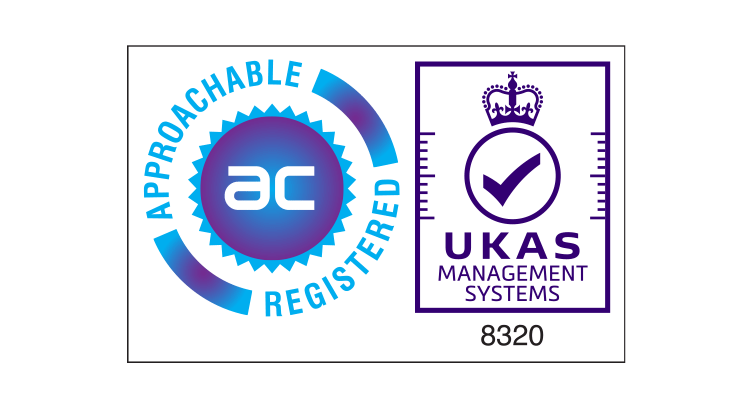Field operations management coordinates the delivery of service operations and processes off-site or in the field. Field operations often involve remote or field-based teams performing tasks, collecting data, or providing other services in the field. These teams of field operatives often consist of skilled professionals like technicians, engineers, surveyors, and inspectors.
Introduction to Field Operations Management
What are Field Operations?
Feld operations refer to the activities and tasks performed by employees outside of a central office. This involves having a remote or field-based team perform tasks, collect data, or provide other services in the field, or outside of a central location. These teams of field operatives often consist of skilled professionals like technicians, engineers, surveyors, and inspectors. The activities they complete in the field can include:
-
Installation, maintenance, and repair of infrastructure
-
Meter reading and data collection
-
Responding to emergencies and outages
-
Customer service visits (e.g., meter installation)
-
Inspections and safety checks
What is Field Operations Management?
Field operations management coordinates the delivery of service operations and processes outside of one central location, i.e. in the field. The acitivities involved in field operations management often include:
- Scheduling and dispatching field technicians to jobs based on their skills, availability, and location.
- Work Order Management that oversees the lifecycle of work orders from creation to closure
- Allocating resources, ensuring the right resources (personnel, equipment, materials) are available and optimally used for each task.
- Real-time communication between field technicians, management, and customers.
- Quality control, inspecting and ensuring the quality of work performed meets company and customer standards.
- Customer relationship management including service requests, feedback, and follow-up activities.
Connected devices and digital communications witnessed the advent of field operations management software, which expands the scope of what field operations management can do.
Industries with technicians working off-site can use field operations management software to manage and track the progress of field operations in real-time. Field operations managers and dispatchers use this software to manage the personnel and resources involved, such as scheduling and dispatching workers, tracking inventory and materials, and generating reports on the status of various operations. In the modern world, field operations management software can help organisations improve operational efficiency, reduce downtime, and better serve their customers. But this didn’t happen overnight…
Evolution of Field Operations Management
Field operations management traces its origins to the early 20th century with the expansion of companies and the need for managing offsite activities. Early adopters like roadside assistance services (e.g., RAC, AAA) and the utilities sector, including the historic development from Thomas Edison’s Pearl Street station to the UK’s national grid, highlight its long-standing significance.
Technological Advancements
The role of field operations management has become crucial as industries evolved, necessitating the management of external processes. The advent of technology, particularly the internet and portable computing, has revolutionised this field. Initially reliant on manual, error-prone methods, field operations management has since embraced software solutions to automate and consolidate tasks on a single platform. This shift began with basic scheduling tools but has now expanded to include features like real-time monitoring, mobile data capture, and system integration.
Today, field operations management software is a cornerstone in various sectors, enhancing the coordination of field teams and ensuring efficient, customer-focused service delivery.
Emphasis on Training
Field operations software has facilitated an increased focus on training and development for mobile technicians. In the past, field operations managers often had to rely on workers with pre-existing knowledge and skills. Today, there is a greater emphasis on providing training and development opportunities to help workers improve their skills and stay up-to-date with the latest industry practices.
Through using effective field operations management, the cycle of continuous improvement and workforce up-skilling leads to:
In short, field operations management has come a long way over the years and continues to evolve and meet the changing needs of businesses and industries. With the broader development of technologies and techniques, field operations managers gain even more tools and resources to help them succeed in their roles.
Challenges in Field Operations
Despite the advancements in technology and the increasing sophistication of field operations, organisations like yours are facing several challenges in managing field operations efficiently. These challenges stem from the inherent complexities of working outside traditional office environments and require strategic solutions to overcome.
Overcoming these challenges requires a blend of strategic planning, investment in technology, and a focus on continuous improvement and training. By recognising and addressing these hurdles, you can look to the market for solutions that drive improved operational efficiency, customer satisfaction, and competitive advantage.
Why is Field Operations Management important?
Field Operations Management can have a direct impact on the efficiency, profitability, and customer satisfaction levels of your service operations. Here’s why it’s important:
- Enhanced Efficiency: By optimising scheduling, dispatching, and route planning, field operations management significantly reduces wasted time and resources, leading to more jobs completed per day.
- Improved Customer Satisfaction: Timely and efficient service delivery, enabled by effective field operations management, directly contributes to higher customer satisfaction and loyalty.
- Increased Visibility: Real-time tracking of field personnel and resources offers managers immediate insights into operational status, allowing for quick adjustments and improved decision-making.
- Cost Reduction: Efficient resource allocation and route optimisation minimize unnecessary expenses, such as fuel costs and overtime pay, contributing to overall cost reduction.
- Compliance and Safety: Ensuring that field operations comply with legal and safety standards minimises the risk of accidents and regulatory penalties, protecting both employees and the company.
- Quality Assurance: Systematic monitoring and evaluation of field activities help maintain high-quality service standards, reducing the likelihood of errors and rework.
- Scalability: Effective field operations management allows businesses to scale their operations smoothly, accommodating more customers and new contracts without compromising service quality.
Features of Effective Field Operations Management
Ready to learn more about connected field operations? Discover Utilise by Totalmobile. Utilise drives productivity and efficiency in Utility and Infrastructure organisations by providing management with the real-time performance insights of their entire field operations, enabling them to manage the profitability of every contract. Learn More.
Closing Thoughts




Frequently Asked Questions about Field Operations
What is the meaning of field operations?
Field operations are activities and tasks executed by an organisation outside a central office or location by remote or field-based teams. These activities include installing, maintaining, and repairing infrastructure, meter reading and data collection, responding to emergencies, conducting customer service visits, and performing safety inspections. Field operations involve skilled professionals such as technicians, engineers, surveyors, and inspectors who work directly in the field to deliver services and ensure operational success.
What is the difference between field operations and project management?
Field operations management and project management, while interconnected, serve distinct functions within an organisation. Field operations management focuses on the daily management of tasks and activities conducted outside of the office environment, emphasising scheduling, dispatching field technicians, work order management, resource allocation, and quality control to ensure efficient service delivery and customer satisfaction.
On the other hand, project management is broader and encompasses the planning, initiation, execution, monitoring, and closing of projects within set deadlines and budgets. It involves setting goals, allocating resources, and managing teams to achieve project objectives. While field operations management ensures the efficiency of field services on a day-to-day basis, project management oversees projects from start to finish, including tasks that may not necessarily be field-related.











